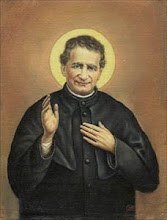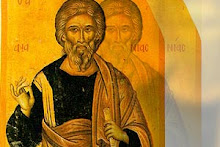The Spiritual Life of the Catechist
As Witness of Truth, Beauty, and Goodness (Joy)
“God has set up in the Church first Apostles, second prophets, third teachers . . .”
- (1 Cor 12:28)
St. Paul’s view on the role and mission of the Catechist
When listening to St. Paul’s catechetical discourses on the role and position of catechists throughout the early Church in his first letter to the Corinthians, one cannot help wonder who or what the first initial catechists thought after hearing these words what their role would entail regarding catechetical instruction or better yet how they would be formed into catechists.
I use this specific passage from St. Paul as one of the many pedestals I have personally used in the last eleven years of forming and developing an army of Catechists for the Kingdom of our Lord. The role of the catechist echoed by St. Paul as teacher reveals a close, intimate association with the Apostles and Prophets by virtue of their common mission to proclaim the Kingdom of God (Kergma). Reading further into his letter, St. Paul deciphers further ministries (i.e. workers of miracles, healers, administrators etc.) within the Church and their particular catechetical emphasis. Looking at these various components, St. Paul stresses a unity that ties all these ministries together (communio) in the Theological virtue of Love (1 Cor 13:1-3)
In light of St. Paul’s discourse on the role of catechists, I will attempt to address the issue of Catechist formation at length by focusing on three primary sources (Guide for Catechists, Catechesi Tradendae, and the General Directory for Catechesis. These three sources provide a framework on the initiatory development of spiritual formation in the life of the Catechist that I feel is crucial to maintain an authentic catechetical structure where the Catechist faithfully lives out his or her call to instruct the faithful with love.
The Guide for Catechists and Catechesi Tradendae offer us pillars for Catechist Formation
The Guide for Catechists, (1993) echoes the intimate nature of the role of the catechist formed in recognizing the “. . . supernatural and ecclesial by grace to the ministry of catechesis to be able to respond to the Son of God, ‘Here, I come’ (Heb 10:7) or, like the prophet, ‘Here I am, send me’ (Is 6:8).” (2)
Observing the nature of this call, I reflect on my first meeting with a Pastor to address his catechetical concerns for his large (2,700 families) parish community. To paraphrase the length of our meeting three distinct points come to the forefront:
One: Does the catechist proclaim an Authentic Catholic Witness to his/her students?
Two: Is this authenticity conveyed through a proper structure of the catechetical lesson taught; (i.e. Deposit of Faith)?
Three: Is there a sense of love in the ministry of the catechist where everything exposed is through a proper Catholic world-view i.e. truth, beauty, and goodness?
The Spiritual Aim of the Catechist
The Guide for Catechists provides us with several key elements that prove essential to the Spiritual formation of the Catechist.
A. Openness to the Word. The office of catechist is that of communicating God’s Word, and so the fundamental spiritual attitude of the catechist should be one of openness to this Word. Openness to the Word means openness to God, to the Church and to the world. (7)
1. Openness to God requires an interior attitude which shares in the love of the Father, who wishes that all should come to the knowledge of the truth and be saved (cf. 1 Tim 2:4); which seeks communion with Christ, so as to share his own “mind” (Phil 2:5) and experience . . . which allows oneself to be molded by the Spirit and transformed into a courageous witness and an enlightened preacher of the Word. (7)
2. Openness to the Church expresses itself by filial love, dedication to its service and a willingness to suffer for its cause. “In particular, it is expressed in the attachment and obedience to the Roman Pontiff and to the bishop, the father and guide of the particular church. The catechist’s service is never an individual or isolated act, but is always deeply ecclesial. The ecclesial sense that is proper to the catechist’s spirituality expresses itself in sincere love of the Church, in imitation of Christ, who “loved the Church and sacrificed Himself for her.” It is an active and total love which becomes a sharing in the Church’s mission of salvation to the point even of giving one’s life for it if necessary.” (7)
3. Missionary openness to the world “requires that catechists be open and attentive to the needs of the world, knowing that they are called to work in and for the world, without however belonging completely to it.” (cf. Jn 17:14-21)(7) “This means that they must be thoroughly involved in the life of the society about them, without pulling back from fear of difficulties or withdrawing through love of tranquility.”(7) They must keep a supernatural outlook on life and trust in the efficacy of God’s word, which does not return to Him without “succeeding in what it was sent to do.” (Is 55:11) (7) “Openness to the world is a characteristic of the catechist’s spirituality in virtue of the apostolic love Jesus the Good Shepherd, who came “to gather in unity the scattered children of God.” (Jn 11:52) Catechists must be filled with this love, bringing it to their brothers and sisters as they preach to them that God loves and offers his salvation to all.” (7)
B. Coherence and Authenticity of life. “Before the preach the word, catechists must make it their own and live by it. Before doing the catechesis one must first of all be a catechist; the truth of their lives confirms their message.” (8) “Authenticity of life menas a life of prayer, experience of God and fidelity to the action of the Holy Spirit. It implies a certain intensity and an ninternal and external orderliness; adapted to the various personal and family situations of each . . . the more intense and real one’s spiritual life is, the more convincing and efficacious will one’s witness and activity be.” (8)
C. Missionary Zeal. “Catechesis should have a strong missionary spirit – a spirit that will be all the more effective if they are seen to be convinced of what they say and are enthusiastic and courageous, without ever being ashamed of the Gospel.” (9) (cf. Rom 1:16)
1. Catechesis will try to be like the shepherd who goes in search of the lost sheep “until he finds it” (Lk 15:4), or like the woman with the lost drachma who would “search thoroughly until she had found it” (Lk 15:8).
2. Their convictions should be a source of apostolic zeal: “I have made myself all things to all in order to save some at any cost. I do it all for the sake of the Gospel” (1 Cor 9:22-23; cf. 2 Cor 1:15). (9)
“The burning zeal of St. Paul should inspire catechists to stir up their own zeal, which should be the response to their vocation, and which will help them to preach Christ boldly and work actively for the growth of the ecclesial community.” (9)
“Finally, catechists should not forget that the stamp of authenticity on the missionary spirit that is that of the cross.” (9)
D. Devotion to Mary. “The Spirituality of the Catechist, like that of every Christian and especially those involved in the apostolate, will be enriched by a deep devotion to the Mother of God.” (10) “They will find in Mary a simple and effective model, for themselves and others: ‘the Virgin Mary I her own life lived an example of that maternal love by which all should be fittingly animated who cooperate in the apostolic mission of the Church on behalf of the rebirth if humanity.’” (10; quoting LG 65) “The earliest Christian community was a model of this (cf. Acts 2-4), united around Mary the mother of Jesus (cf. Acts 1:14).” (10)
Some Practical Steps to Fostering a “Deep Spiritual Life” (22):
“To be able to educate others in the Faith, catechists should themselves have a deep spiritual life. This is the most important aspect of their personality . . . the real catechist is a saint.” (22)
The best way to attain this interior maturity is an intense sacramental and prayer life. The following practices are proposed as key elements in the prayer life at least of the catechists who guide the community in a supplementary way, full-time catechists and those working closely with the parish priest:
1. Regular, even daily reception of the Eucharist, so as to nourish oneself with the “bread of life” (Jn 6:34), to form “a single body” with the community (cf. 1 Cor 10:17) and offer oneself to the Father along with the Lord’s body and blood (22);
2. Lived Liturgy in its various dimensions for the personal growth and for the help of the community;
3. Recital of part of the Divine Office;
4. Daily Meditation, especially on the Word of God, in an attitude of contemplation and response;
5. Personal Prayer, with special attention to Marian Prayer;
6. Frequent reception of the sacrament of penance, to ask pardon for faults committed and renew one’s fervor;
7. Participation on spiritual retreats;
8. Spiritual Direction
Taking these three tasks I immediately reflected on the late Pope John Paul II catechetical masterpiece Catechesi Tradendae where he presents a clear two-fold call of what the catechist is to convey and live at the same time; “. . . to put people not only in touch, but in communion, in intimacy, with Jesus Christ. . .” (5) This intimacy is crucial if we are to follow what Pope John Paul II calls the Sequela Chrisi- the way of Christ. (5)




